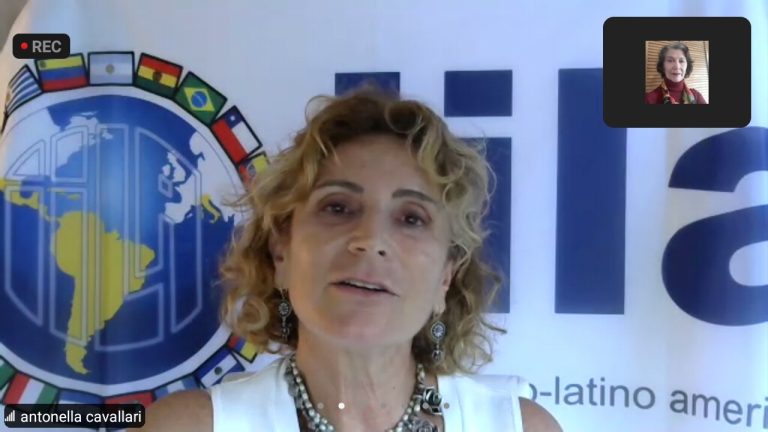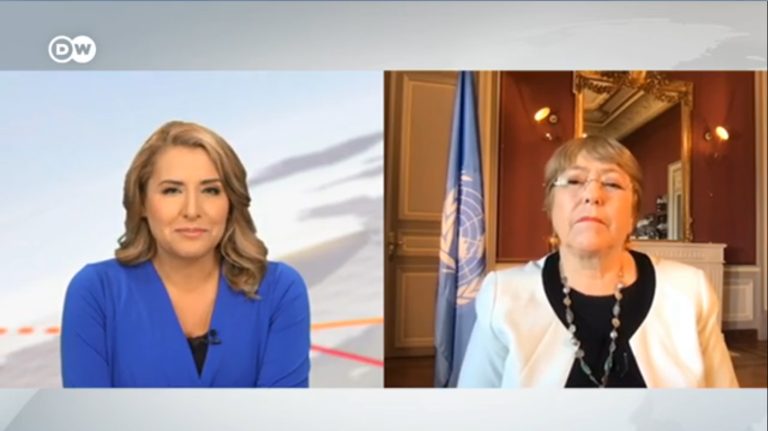The battle of the world’s women against violence
Online meeting organized by AMMPE WORLD
On the International Day for the Elimination of Violence against Women established by the United Nations, November 25, AMMPE World organized an online meeting with experts who fight against the many types of violence suffered by women in the world. And the title was «Not only blows», to give an idea that women can not only be victims of physical abuse, even femicide, but often receive concealed psychological violence, threats, extortion, sexual abuse, both in the family environment and in the workplace. Mistreatment and femicide increased worldwide in this period of pandemic. In Italy, according to official data, until the end of October 2021, 109 femicides were committed, 8% more than in 2020.
of Violence against Women established by the United Nations, November 25, AMMPE World organized an online meeting with experts who fight against the many types of violence suffered by women in the world. And the title was «Not only blows», to give an idea that women can not only be victims of physical abuse, even femicide, but often receive concealed psychological violence, threats, extortion, sexual abuse, both in the family environment and in the workplace. Mistreatment and femicide increased worldwide in this period of pandemic. In Italy, according to official data, until the end of October 2021, 109 femicides were committed, 8% more than in 2020.
The Meeting was moderated by the president of AMMPE World, Patricia Mayorga, who explained that femicides «are the tip of the iceberg of the drama of violence against women that is experienced around the world.»
Five women from different international organizations committed to the fight against this violence told their experiences. Beatrice Tassara also left her greeting. She is Advisor for Equal Opportunities of the Italian Municipality of Santa Maria Ligure, the town where took place in august the G20 -the organization of the 20 countries considered the largest economies in the world and chaired by Italy this year- meeting about women.
PARITY DEMOCRACY AND THE FIGHT AGAINST FORCED MARRIAGES
According to Daniela Carla’, promoter of the network «Noi rete donne» (We women’s network) whose principle is: «Without gender equality there is no democracy», behind each episode of violence there is a «common denominator»: «the inability of fragile men to face female freedom». It is important to contrast not only physical violence but the «sexual nuisances» that occur in the family and in the workplace, both public and private, she said, and encourage certain cultural and mental changes «where violence originates.»
Fernanda Gallo, International Director of Zonta, an organization born in the United States in 1919, and whose purpose is to raise the female figure at a legal, political, economic and professional level, explained her symbol project: the fight against child marriages. One girl out of five in the world is forced to marry before the age of 18, which means about 12 million girls a year, Gallo said. In 2020, four million girls participated in the programme that took place in 12 countries – including Niger, Burkina Faso and Ethiopia – where listening centres were also set up.
INFORMATION AND ECONOMIC AUTONOMY
The journalist Alba Kepi, correspondent in Italy for the Albanian television RTV, presented an overview of the situation in her country, where «many women do not even know how they can denounce violence», a fact quite common in the rest of the Balkan countries. «The Balkan mentality is very macho and the marriage of minor girls very common,» she added. It is necessary to «offer more information» so that people can denounce and at the same time the public opinion knows what is happening.
Marcia Scantlebury, a multi-award-winning Chilean journalist (Lenka Franulic Award in Chile, StandoutWomanAward) referred to the «routine and silent realities that do not occupy the pages of the written press or television screens…They are those that are linked to the caretaker work that is performed most of the time without monetary reward». It is a job that involves very high costs for those who carry it out, usually women, she recalled, «in terms of time, quality of life, health and opportunities». This model that in Chile, as in others countries, accepts the idea that «we are the ones forced to juggle family and work lives», a situation of unprecedented violence «that restricts autonomy and clip the wings of women’s dreams», which means that «we have less time available for education, leisure, political participation and paid employment».
TOGETHER WITH BURMESE WOMEN
Cecilia Brighi, Secretary General of the association «Italia-Birmania insieme» (Italy-Burma together), recalled that the dictatorship in that country lasted for more than 50 years, interrupted by 10 years of democracy until February of this year when another coup d’état reinstated the dictatorship. In April, the opposition created a Government of National Unity declared illegal by the dictatorship but which still exists.
In these 10 months of dictatorship and after having lived 10 years of democracy, Burmese women have become the protagonists of the so-called «spring revolution» that is trying to carry out profound changes in social life and culture, Brighi said. He recalled that during the dictatorship women were used as weapons of war, many were kidnapped and taken to China for forced marriages, others, especially minors, were kidnapped and sent almost as slaves to Singapore and Malaysia where they also suffered sexual abuse.
Any kind of repression in these times «will not succeed in nullifying all this burden of change and participation of women that has been built in these 50 years of dictatorship. It is a profound change that must be helped to grow,» Brighi concluded.






